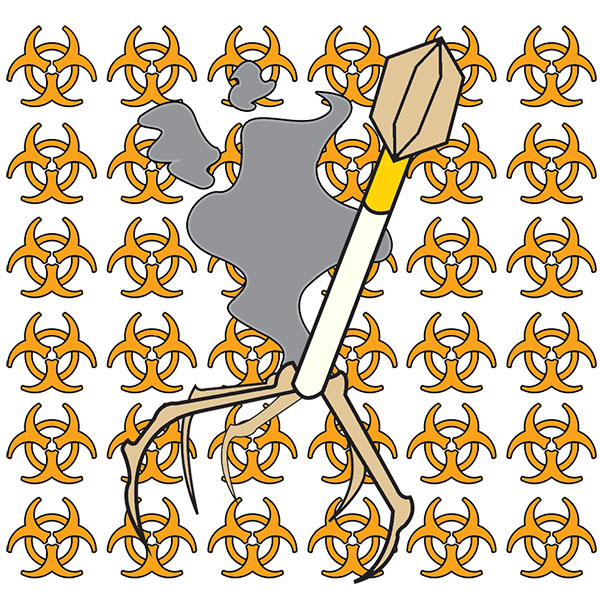A recent UT study found that human papillomavirus, better known as HPV, is linked to 73% of head and neck cancers.
Dr. Laura Chow, an oncologist at the UT Health Austin LIVESTRONG Cancer Institutes, said consuming alcohol and smoking tobacco were previously thought to be the most common links associated with these types of cancers. Chow said every individual’s experience with HPV, which is usually transmitted through sexual intercourse, is different.
“When people get the viral infection, some have it go away, but other people get a bad subtype of the virus that becomes pretty aggressive and leads to chronic inflammation,” Chow said. “This eventually leads to cancer.”
Chronic inflammation happens when the body releases antibodies and proteins in an attempt to fight the infection, but the body remains in a state of alert, leaving a negative impact on your organs, Chow said.
Chow said the HPV vaccine can prevent, but not treat, the virus. She said it is important for people to receive the HPV vaccination before they become sexually active as a prevention method for possible chronic infections or cancer. Currently, people from ages nine to 26 can receive the vaccination, Chow said. In 2018, the FDA approved expanded use of the vaccination to both women and men aged 27 through 45.
“It is very important to vaccinate both girls and boys,” Chow said. “(The Food and Drug Administration was) looking at extending the approval (age) to 45 for girls, but when they realized there was an association and we could prevent head and neck cancers in boys, (the range) expanded to include both men and women.”
The vaccine is administered through a series of three shots over six months if the patient is 15 or older and two shots if they are younger than 15. University Health Services provides the HPV vaccine to students, including those who are already sexually active.
Chow said the number of cancers found to be linked to HPV has increased, but the amount of people being affected is small.
“Head and neck cancer used to be a huge issue, but it’s slowly decreased over time,” Chow said. “Globally, we are looking at 3% of cancer being head and neck cancer, and only a small portion of those are (HPV-related) cancer.”
Dr. Lauren Thaxton, obstetrician gynecologist at the UT Health Austin Women’s Health Institute, said she recommends women receive a pap test, which tests sample cells from the cervix to detect abnormalities.
“Patients find out they have HPV through routine screening,” Thaxton said. “Part of pap testing now includes testing for HPV and particular testing for the high-risk strains of HPV that we know are most likely to lead to cancer.”
Prenursing freshman Sophia Marioni said college students should be open to talking about the risk HPV carries. She said it is not only important to take action once the virus becomes aggressive but also before it is in your system.
“HPV is a subject that we should get more people to talk about because we are at an age where we are sexually experimenting, and not a lot of people like to be open about it,” Marioni said.





















